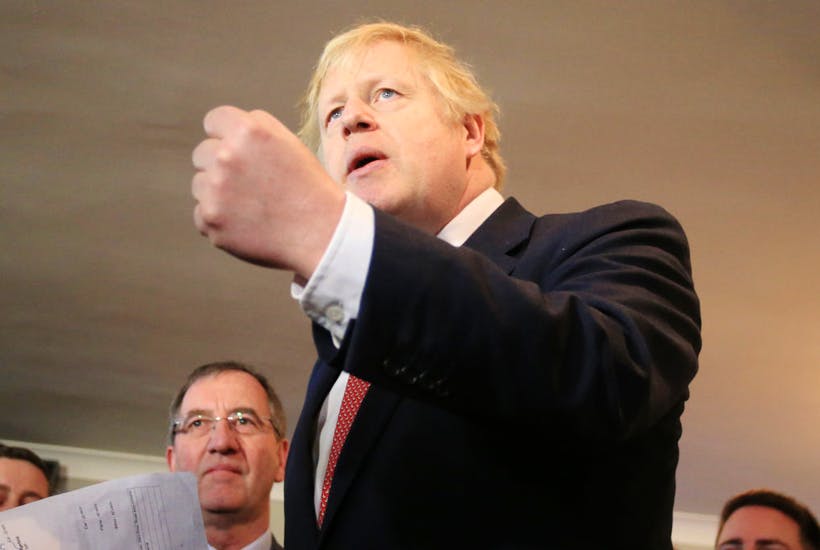It’s decision time in No. 10. This week ought to be the week in which a decision is made on whether HS2 should proceed – and whether Huawei should be given access to the UK’s 5G network. Whichever way the government moves on these issues, a chunk of the Tory party will be left unhappy.
On HS2, the initial signs suggest the government is leaning towards giving the project the go ahead – at least in some form. No decision will be made until Boris Johnson meets this week with Sajid Javid and Grant Shapps, the Transport Secretary. However, on Sunday, Stephen Barclay – the Brexit Secretary – suggested on the Andrew Marr show that high speed rail was a key part of the government’s promise to level up the country. This is being read as the government attempting to lay the groundwork for a decision in favour of the project. Such a decision would please MPs in the Midlands – and, crucially, Andy Street – the West Midlands mayor – who is seeking re-election this year. But there are many Tory MPs who view the over budget project as a £100bn white elephant that ought to be axed. If HS2 goes ahead, it means there will be less money for the various projects new Tory MPs in the north are pushing for.
The second difficult decision relates to Huawei. This week Boris Johnson is due to make a final call on whether the Chinese tech company Huawei will be granted a role building Britain’s 5G infrastructure network. This is something America is very against and the US side – including the US ambassador – have been making that known to No. 10. The expectation within the Tory party is that Johnson will grant Huawei access and in the process risk a diplomatic falling out with the US. Within Cabinet, Ben Wallace and Priti Patel are sceptical of Huawei being granted access. On the backbenches, a number of Tory MPs have already gone public to warn against the move. The argument in favour of Huawei that other ministers put forward is that MI5 have deemed it safe and it is the best way to reach the government’s 5G target – crucial to the level up agenda.
The size of Boris Johnson’s majority means that he can make a decision that upsets MPs in his own party and not worry that it means he will be stopped in his tracks. The scale of any rebellion isn’t so great that Johnson will lose backing or not have a majority where legislation is involved. However, even with a large majority unhappy backbenchers have a way of making life difficult for a prime minister. Since the election victory, the Tories have been a happy and united bunch – that position is not sustainable in the long run. The most illuminating thing about these decisions is that it will be the first time since the election that we are given a clear signal of what type of government the Prime Minister intends to lead.







Comments